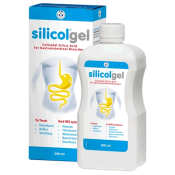An introduction to IBS and insomnia
Insomnia is difficulty falling asleep, or experiencing disturbed sleep which is often associated with Irritable Bowel Syndrome (IBS). This in turn can lead to unwelcome symptoms such as irritability and fatigue during the day.
Sleep is critical for our bodies to repair and restore so losing sleep may also be detrimental to our general health, especially if an underlying issue exists.
For general information on sleeping issues, sleep disturbances or insomnia go to our Sleep Hub.
Why does IBS cause insomnia?
Symptoms of IBS such as stomach or back pain and the need to go to the bathroom can be troublesome during the night and this is one key reason why the condition can lead to disturbed sleep.
In Western society most people eat their largest meal of the day in the evening. If you experience IBS symptoms after the intake of food then it is likely that by the time you are ready for bed, your symptoms will have started to flare up.
During sleep your parasympathetic nervous system becomes more active. This part of the nervous system has been nicknamed the ‘rest and digest system’ because it controls a lot of unconscious bodily functions, including digestion.
So, during the night when we aren’t consciously controlling our bodies, digestion will be active and any issues associated with your digestive system may become more evident. Pain, discomfort or distinctive changes in bowel movements are all likely to disturb sleep.
Stress is also thought to be a major contributing factor in IBS. It is also a common cause of insomnia or disturbed sleep. Whilst the factors in each individual circumstance will vary, it is clear that IBS, stress, disturbed sleep and insomnia are closely linked.
What can I try at home for insomnia?
There are a few simple steps you can take at home to try to sleep better at night:
- Avoid caffeine: Caffeine releases adrenaline in the body, which puts our bodies into ‘fight or flight’ mode. This state can trigger pronounced physical responses such as sweating and heart palpitations - far from feeling relaxed! Try to avoid caffeinated drinks at least in the four hours leading up to bed time; use camomile tea as a soothing alternative
- Get in a good bedtime routine: This includes actions or factors to help aid sleep which we call our sleep hygiene tips. A good example is having a hot bath in the lead up to bed time to help relax your muscles, add in some lavender bath oil which is known as a calming herb.
- Exercise: There is some suggestion that exercise may help to encourage better sleep. The theories surrounding this advice suggest that as exercise helps to reduce symptoms of stress and anxiety, sleep quality improves. Exercise can also be a more direct, physical effect on the body – you will naturally be more tired and in need of restoration and repair after physical exertion.
How can herbal remedies help me?
There may be a few herbal remedies which can help to give you a better night of sleep.
- Dormeasan: Dormeasan is a herbal sleep aid made from the herbs valerian and hops. It is especially useful in the relief of sleep disturbances caused by the symptoms of mild anxiety so may be especially useful for people experiencing both IBS and anxiety as well as poor sleep
- Tormentil: If the bowel symptoms of IBS are the primary cause of the insomnia it may be useful to try and address this issue specifically, reducing interruptions to your night’s rest. Consider Tormentil which can be used to help calm the gut and maintain normal rhythmical contractions.
How can my doctor help?
If home and herbal remedies fail to help you sleep better, a trip to your doctor may be necessary. This is especially important if you feel particularly anxious, depressed or suicidal.
Your doctor may prescribe anti-spasmodic drugs to help calm the gut. In addition, hypnotic or sedative drugs may be recommended but do be aware of potential side effects and the need to use these options only as short-term solutions.
Read our blog: Disturbing news about sleep disturbances for all the information you need on prescribed sleeping tablets.








